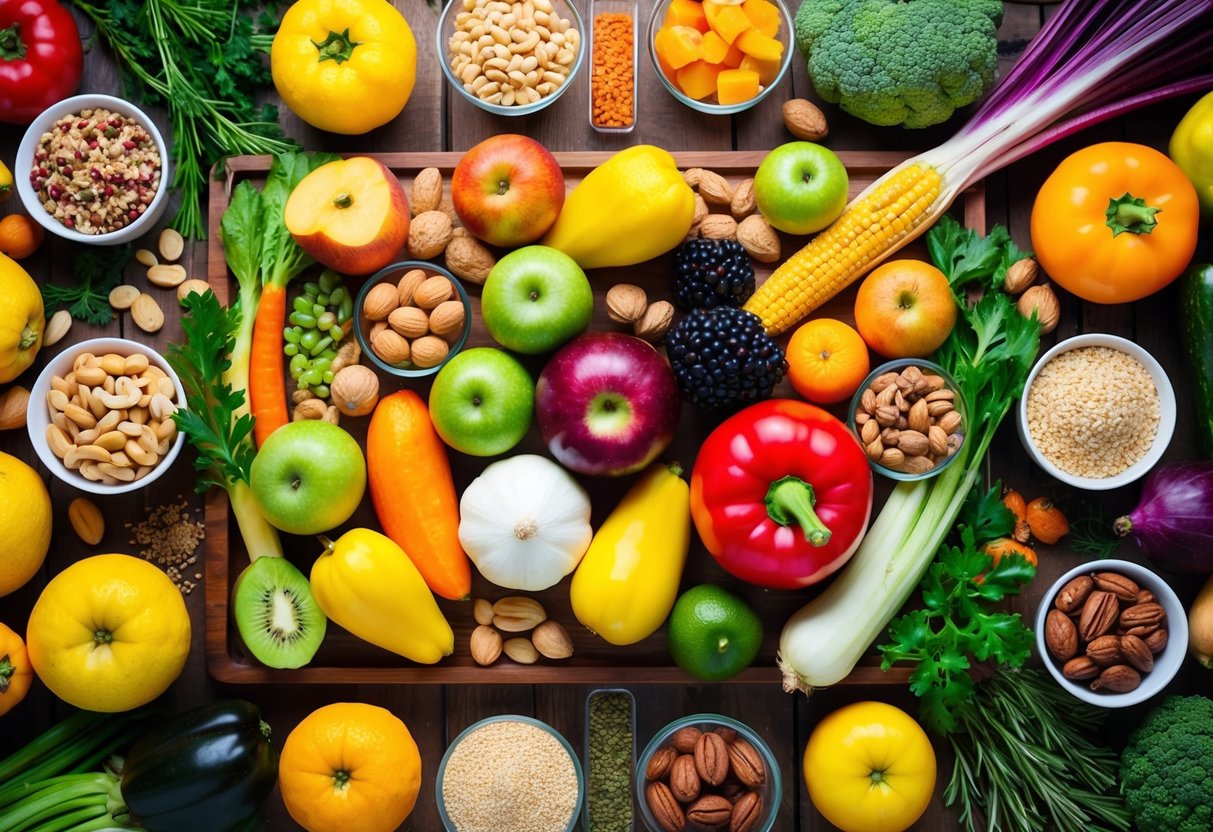
Nutrient-dense foods play a crucial role in optimizing one’s health by providing maximum nutrients for minimal calories. These foods, rich in vitamins, minerals, and other essential nutrients, form the cornerstone of a balanced diet. Focusing on nutrient-dense foods can lead to improved health outcomes and energy levels. This approach emphasizes quality over quantity, encouraging individuals to make informed food choices that support their wellness goals.
The concept of nutrient density encourages the consumption of foods that pack more nutrients into fewer calories, such as fruits, vegetables, lean meats, and whole grains. By prioritizing these options, people can ensure they are getting vital nutrients without overconsuming calories, which often leads to weight gain. Lean proteins and healthy fats are also integral to a nutrient-rich diet, supporting various bodily functions efficiently.
Healthy eating is not just about cutting back on unhealthy foods; it’s about increasing the intake of foods that truly benefit the body. Incorporating more nutrient-dense options into one’s diet can revolutionize meal planning and foster better eating habits. This shift not only nurtures physical health but can also positively impact mental well-being and longevity.
Understanding Nutrient Density
Nutrient density refers to the concentration of essential nutrients in a given amount of food relative to its calorie content. It emphasizes the importance of choosing foods that provide the most nutritional benefits per calorie consumed.
Concept of Nutrient-Dense Foods
Nutrient-dense foods contain a high proportion of vitamins, minerals, and other beneficial compounds compared to their calorie count. They are the opposite of calorie-dense choices, which offer more calories with fewer nutrients. Foods like fruits, vegetables, whole grains, and lean proteins are often considered nutrient dense because they deliver vital nutrients while keeping calorie intake in check.
Incorporating such foods into one’s diet can support health and well-being, leading to improved bodily functions and energy levels. Making mindful choices about including these options helps maintain overall health, especially when resources or calories are limited. They not only assist in meeting dietary needs but also play a crucial role in preventing chronic diseases.
Calculating Nutrient Density
Calculating nutrient density involves assessing the nutrient-to-calorie ratio of different foods to determine their nutritional value. This process requires comparing nutrient content, such as vitamins, minerals, and amino acids, against the caloric content of the food item. By doing this, one can identify foods that provide substantial nutrients without an excessive calorie load.
Specific tools and indices, like the Nutrient Density Score, can help assess and rank foods based on these criteria. These evaluations guide individuals in making more informed dietary choices, enhancing nutrient intake within calorie limits. Understanding these calculations promotes healthier eating patterns and benefits overall health.
The Importance of Macronutrients

Macronutrients—proteins, fats, and carbohydrates—are essential for balanced nutrition and optimal health. Understanding their roles aids in crafting a diet that supports physical wellbeing and energy needs.
Proteins and Their Role in Health
Proteins are fundamental to the body’s structure and function. They are made up of amino acids, often referred to as the building blocks of life. Proteins support muscle growth, tissue repair, and the production of enzymes and hormones. They are crucial for maintaining healthy skin, hair, and nails. Ensuring adequate protein intake is vital for overall energy and immune function. Protein sources include meat, fish, eggs, dairy products, legumes, and nuts. An individual’s protein needs can vary based on age, gender, and level of physical activity, but it is essential to incorporate a variety of protein-rich foods to meet dietary requirements.
Fats: Healthy Fats vs Saturated Fats
Fats are a key source of energy and play a pivotal role in supporting cell growth. They are also important for protecting organs and keeping the body warm. There are two main types of fats: healthy fats and saturated fats. Healthy fats, such as monounsaturated and polyunsaturated fats, are found in foods like olive oil, avocados, and fatty fish. These can support heart health and reduce inflammation. Saturated fats, commonly found in butter, cheese, and red meat, can raise cholesterol levels and pose a risk to heart health if consumed in excess. Balancing fat intake by choosing healthier options is crucial for maintaining optimal health.



